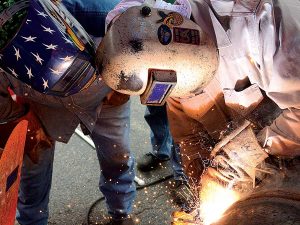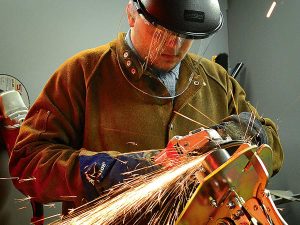UA Local 529 advocates on behalf of members and the union piping industry regarding certain issues and legislation that impact Texas’s plumbing and pipefitting industry.
We track the following issues and, when necessary, take action to protect the best interest of our members and strive to maintain the highest safety standards on all jobsites.
Some of the most significant construction issues that impact Local 529 and our members include the following:

These laws allow people to enjoy the benefits of a union without paying for union representation. So-Called “Right to Work” laws seek to undermine the financial stability of organized labor by prohibiting unions from collecting fair share fees.
In states without So-Called “Right to Work” laws, such as Texas, workers who choose not to join their workplace’s union, but are covered under a Collective Bargaining Agreement, do not pay union dues. Instead, they pay “fair share” fees to cover the basic costs the union incurs to represent them.
However, in So-Called “Right to Work” states, employees covered under a CBA who are not union members do not have to pay their “fair share” fees. In essence, they earn some of the many union benefits without having to pay for them.
According to Tex. Labor Code Ann. §§ 101.001, an employer cannot deny individual employment based on union membership. The law allows workers to gain union representation and all the benefits enjoyed from union membership without paying their fair share for the representation.
Local 529, our sister United Association Local Unions in Texas and our signatory contractors oppose So-Called “Right to Work” laws, as they also create an unsafe workplace and encourage the use of unskilled, low-wage labor.

These laws allow people to enjoy the benefits of a union without paying for union representation. So-Called “Right to Work” laws seek to undermine the financial stability of organized labor by prohibiting union from collective fair share fees.
In states without So-Called “Right to Work” laws, workers who choose not to join their workplace’s union, but are covered under a Collective Bargaining Agreement, do not pay union dues. Instead, they pay “fair share” fees to cover the basic costs the union incurs to represent them.
However, in So-Called “Right to Work” states, employees covered under a CBA who are not union members do not have to pay their “fair share” fees. In essence, they earn some of the many union benebfits without having to pay for them.
According to Tex. Labor Code Ann. §§ 101.001, an employer cannot deny individual employment based on union membership. The law allows workers to gain union representation and all the benefits enjoyed from union membership without paying their fair share for the representation.
Local 529, our sister United Association Local Unions in Texas and our signatory contractors are opposed So-Called “Right to Work” laws, as they also create an unsafe workplace and encourage the use of unskilled, low-wage labor.





Construction is an inherently dangerous industry and sometimes, through no fault of their own, a construction worker may be injured on the job and forced to miss work as a result of the injury.
If the construction worker belongs to a union, such as Local 529, they will receive worker compensation, which will help provide much-needed income while they cannot work.
The United Association and UA Local 529 believe it is vital for workers to be fairly compensated for injuries suffered due to unsafe working conditions.
All Local 529 signatory-affiliated contractors carry workers’ compensation insurance.




